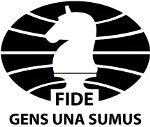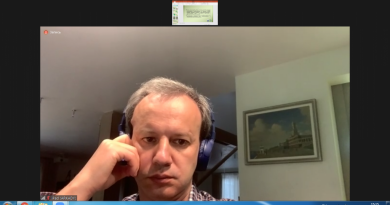Article about “Values and Emotions on Chess in Education”
“Values and Emotions on Chess in Education”
Virtual Congress
October 2021 to February 2022
Official Language: Spanish
Review by Fernando Moreno
During the last decade many congresses and symposiums about the benefits of chess in education have been presented in different parts of the world. Few of them had programs that focus on using chess to develop “emotional intelligence” and what others call “soft” skills. In this VI Congress titled: “Values and Emotions on Chess in Education,” organized recently by AjEdu-DIM, all of the projects focused mainly on developing students’ socio-emotional skills using chess as their main tool.
The principal goal of the VI Congress was to provide innovative methodologies and resources to promote values and educate emotions through educational chess, using gamification and transversality. Within the two years of the pandemic, students around the world are suffering even more in their socio-emotional area. The projects presented give another tool to educators, counselors, and psychologists to increase students’ social emotional skills with regard to values and self-regulation of their emotions by using the game of chess as their tool.
Another aspect that was very beneficial about this Virtual Congress was the format. Presenters that were interested in participating needed to send their work with specific requirements to the AjEdu Committee for their selection. Nineteen speakers from many countries were selected, and their presentations were published on the AjEdu-DIM web for everybody to review. Anybody could go back to the actual source and review all of the contents of each presentation.
Foro de discusión – DIM-EDU (ning.com)
The benefits of such a format are tremendous. If you are an educator and in the classroom, it is very difficult to ask for time off to attend a Congress, but with this format you could review each presentation at your own pace. Also in that way, with some adaptation to our school environment, each of us may use some of the activities presented with our own students in the classroom.
Finally, it was very emotional to attend and listen to all the wonderful presentations at the Congress. It was very gratifying to participate along with many other speakers and highly elevate the importance of using chess in schools to develop life skills. As many of you may know, I have advocated intensively since the publication of my book in 2001, “Teaching Life Skills through Chess,” in favor of the promotion of teaching social emotional skills with chess. Recently the publication by Karel van Delft of the Book, “Chess For Educators” (2021), described extensively as well my work in chapter 7.
On December 30th, the second part of the Congress continued with a live virtual broadcast on YouTube where each speaker presented and answered questions about their project. During the live broadcast, songs about chess interpreted by Alejandro Oliva, such as “Tocada Movida,” were interpreted to make the transition to each speaker smoothly.
The international speakers were distributed in six tables of debate during three different Sundays. Each table was named using one of the feelings (joy, confidence, surprise, perseverance, empathy, and anger). You can watch their presentations at the following link (as a reminder the presentations were done in Spanish).
- First Day: December 30th
Table 1 – Joy: Jordi Prió, Joaquín Fernández, Miriam Monreal, Lourdes Giraldo
Table 2 – Confidence: Xavier Garcia, Edgar Giménez, María Muñoz
- Second Day: February 6th
Table 3 – Surprise: Ana María Fuentes, Antonio Bertomeu, Fernando Moreno
Table 4 – Perseverance: Pedro M. Vicente, Manuel Montero, Leonardo Palma
- Third Day: February 13th
Table 5 – Empathy: Lorena García, Gonzalo Martínez, Javier Tello
Table 6 – Anger: Juan Francisco López, Mailicec Sánchez, Apolonio D. Garcí
All of the projects have very interesting perspectives. I will briefly review a few projects in this Article, but I encourage everybody to review all of them because each project has great resources to develop values and socioemotional competences, such as identification of feelings and self-regulation.
- Chess and emotional competition Strategies for life.
Ajedrez y competencia emocional. Estrategias para la vida.
Xavi Garcia Bou
2020-21 academic year in the Jaume Balmes school in El Prat de Llobregat in the 5th and 6th grade groups
Chess and emotional competition. Strategies for life takes the game of chess as a framework for a symbolic and dynamic model to address emotions and decision-making in the face of the facts of life itself.
One topic in the presentation was recognizing and reflecting on emotional strengths and weaknesses. This topic included: recognizing basic vital needs and assessing, weighing and balancing our emotional strengths and weaknesses. Some specific objectives included distinguishing “what I like” from “what suits me,” recognizing and rationalizing both our losses and our gains, reflecting on the changes that occur throughout our lives in regard to our emotional strengths and weaknesses, and reflecting about the invariability of our basic vital needs, as well as death as the culmination of our vital process.
Reflecting on our weaknesses, weighing them, and assigning a name to each chess piece according to the value and the importance that we give them in our lives with regard to our fears, concerns, people, situations, etc., are some of the valuable tools explored during this presentation.
- “Together, we play better” “Juntos, jugamos mejor”
Lorena García Afonso
Desde Tacoronte, Tenerife .
From Tacoronte, Tenerife.
Chess becomes a very effective educational tool to work on Emotional Intelligence and social skills. We create spaces to share and to play with others. Those scenarios are full of learning and personal growth. We all have something to teach and a lot to learn. Chess invites us to have our pieces work as a team and in harmony, something that we can transfer to our group, family, and society. Like the chess pieces, we are unique and special beings that enrich ourselves by working as a team. Together, we play better.
- Emotional education and values in the childhood stage (Educación emocional y valores en la etapa de infantil)
In this triple presentation, the presenters showed how to implement and work transversally the contents of emotional education and values from a project based on educational chess in the infant stage (children from 3 to 5 years old).
Jordi Prió Burgués
Joaquín Fernández Amigo
Miriam Monreal Aladrén
- Chess and Emotions: Socio-educational interventions project with primary education students (Ajedrez y Emociones: Proyecto de Intervención socioeducativa con alumnado de educación primaria)
Desde Oliva (Valencia) CEIP Santa Anna.
Ana María Fuentes Martínez
Antonio Vicente Bertomeu Sendra
The main goal of the project is to work on socioemotional skills with primary school students through the game of chess. The presenters applied methods and measures to carry out the socio-educational intervention proposal, meeting the specific needs of the student body. The proposal worked on self-awareness and identifying the correct choice and way to avoid conflicts. The project had a pre- and post-evaluation which demonstrated students increased their socio-emotional skills thanks to the program.
To ask any questions about this article, write to Fernando Moreno: Morenofe1962@gmail.com.

